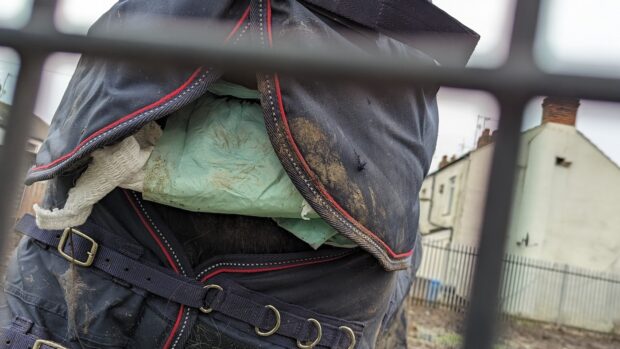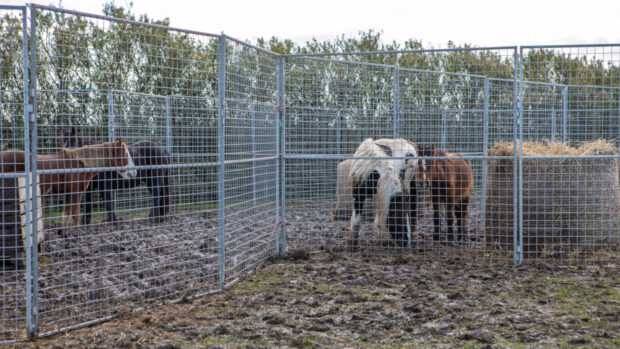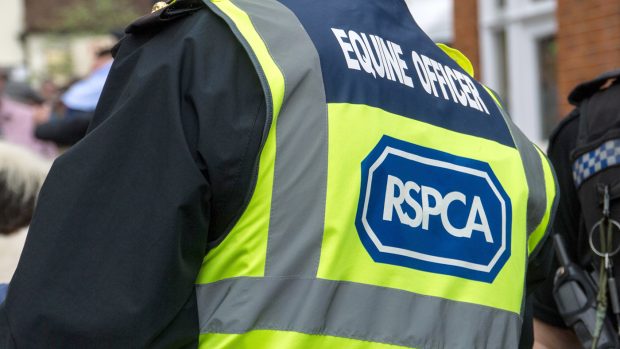The number of horses rescued by the RSPCA has reached a four-year high.
Nearly 1,000 horses were rescued by the charity from cruelty, suffering and neglect last year, and 928 horses are currently in its care.
RSPCA officers have been called out to abandoned horses every day in 2017 in England and Wales, with many of the animals extremely ill or dying.
“We’ve been talking about the horse crisis for several years now, but the truth is the situation is just as severe today as when it started,” said the RSPCA’s inspectorate national equine co-Ordinator Christine McNeil.
“Last year we took in more horses than we have in any of the past four years, and with our inspectors being called to rescue more and more every week, we are stretched to the limits.
“Up and down England and Wales, horses are being found sick, or dumped liked rubbish, dying or dead. Distressingly, this is common and it’s a huge issue.
“We are constantly receiving calls to our cruelty line — on average 80 per day about horses alone — as well as messages every day on social media from very concerned and upset people asking for our help.”
The charity said the impact of the recession, overbreeding, vet bills, the rising cost of hay and falling prices for horses have all contributed to the crisis.
Left for dead
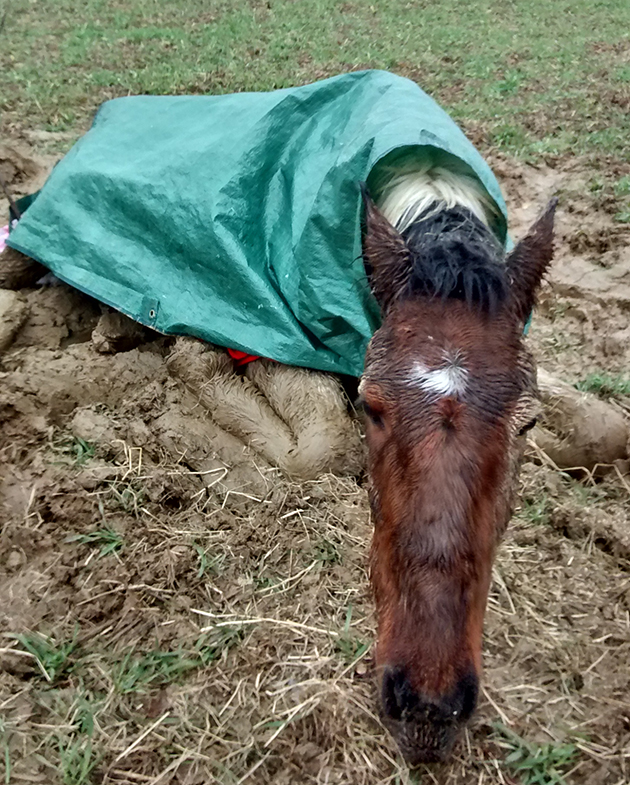
Victims include young horses like Adie, who was was left for dead on New Year’s Eve in Headcorn, Kent.
“Adie was found collapsed in the mud at the brink of death,” said an RSPCA spokesman. “Just skin and bone, inspectors fear his owner felt the sickly youngster was not worth the cost of treating him, and this was the reason he was dumped and left to die in the field.”
Adie was spotted by a walker who called the RSPCA, and he is now recovering in the care of one of the charity’s private boarding stables. But as he was not microchipped, the charity was unable to trace his owners.
The RSPCA welcomes the new Central Equine Database, which it hopes will encourage responsible horse ownership.
Continued below…
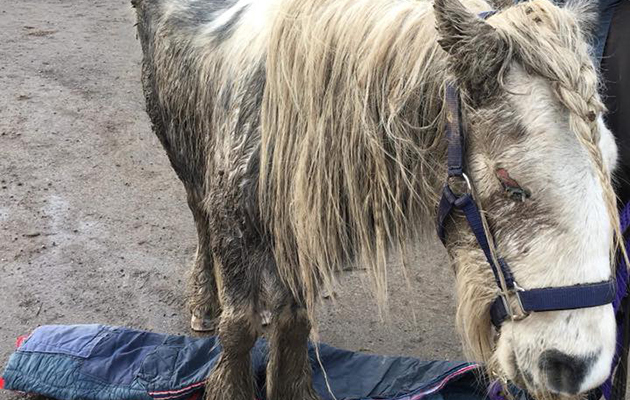
‘He’s a little fighter’: exhausted one-eyed colt defies the odds to survive
The three-year-old was found abandoned and was struggling to get to his feet

Exhausted and riddled with worms: colt found ‘minutes from death’
A dog-walker and local rider helped rescue the youngster, who was found lying in the mud, unable even to lift

‘I couldn’t believe she was still alive’: rescuer reunited with mare she saved
It was more than 20 years ago that Jane Barham rescued former racehorse Koo
“We receive many calls about horses being illegally fly-grazed — where horses are moved from place to place to graze, without permission of the landowner,” added Ms McNeil.
“We hope the new equine database and the introduction of fixed penalty notices this month by the government in England will allow local authorities, landowners and welfare charities to quickly identify the owners of these horses and make them responsible for their animals.
“This will help the situation but until people are educated about the realities of looking after horses we will continue to keep picking up the pieces of this crisis.”
For all the latest news analysis, competition reports, interviews, features and much more, don’t miss Horse & Hound magazine, on sale every Thursday.
This week’s edition (26 April), features a full Badminton preview, including a cross-country course walk with Mary King and full form guide for every horse and rider.


